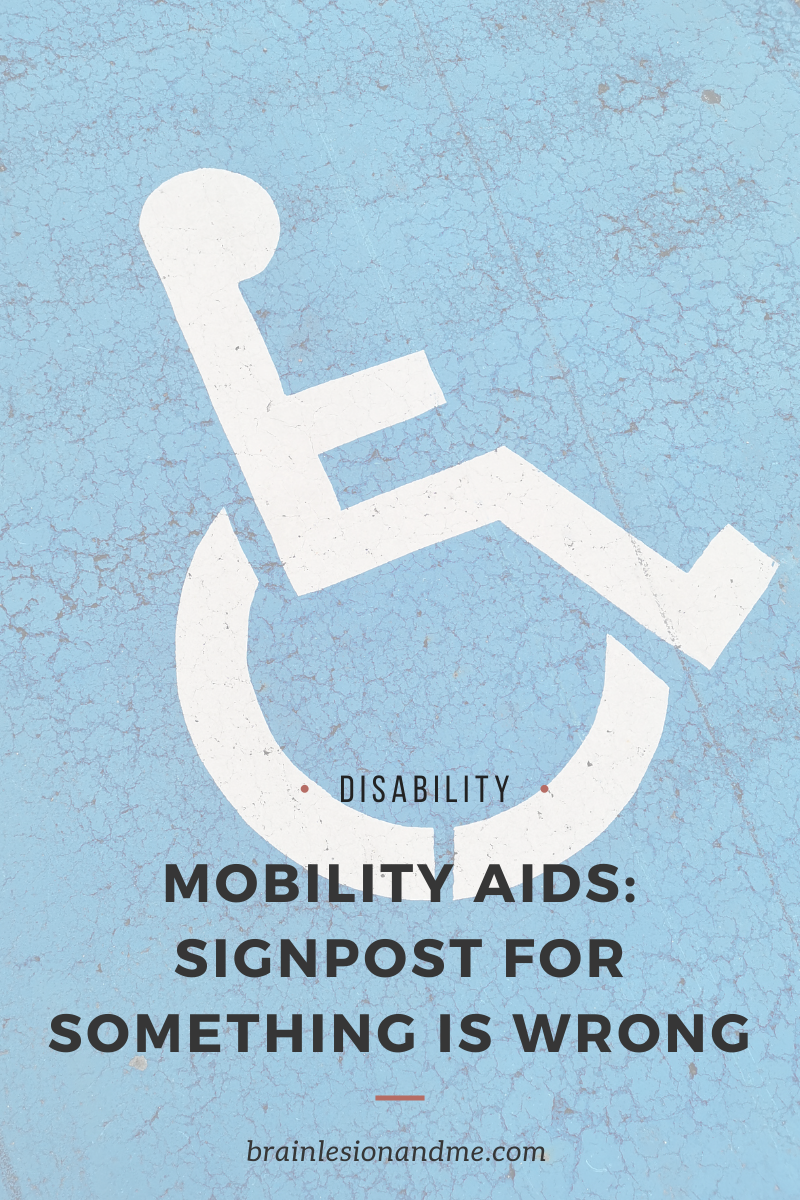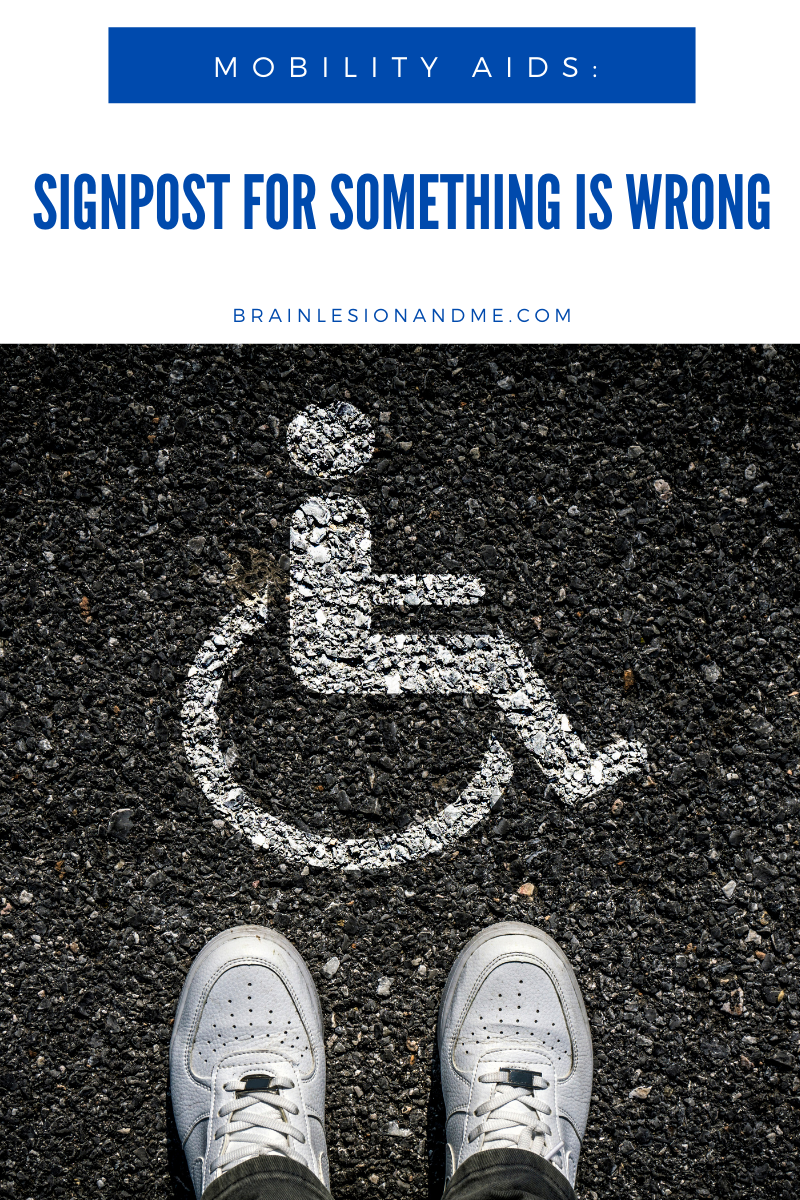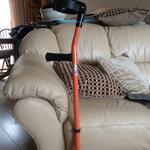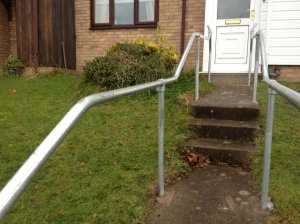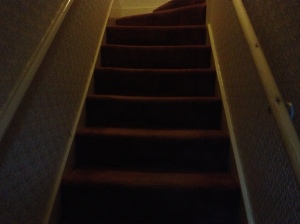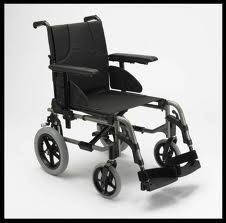Before leaving the house and my coat and bag, I also grab my crutch with some apprehension. A crutch that has become like an ally. One that helps me keep my balance and keep me upright when my legs threaten to give out. And when symptoms are at their worst, and everything feels like a battle, this crutch has become my weapon. But unlike a superhero, it is a weapon not for fighting villains and saving the world. No, it is a mobility aid that enables me to function in the outside world.
"When symptoms are severe, everything feels like a battle; this crutch has become my weapon. But unlike a superhero, it is a weapon not for fighting villains. Instead, it is an aid that enables me to function in the outside world." Click To Tweet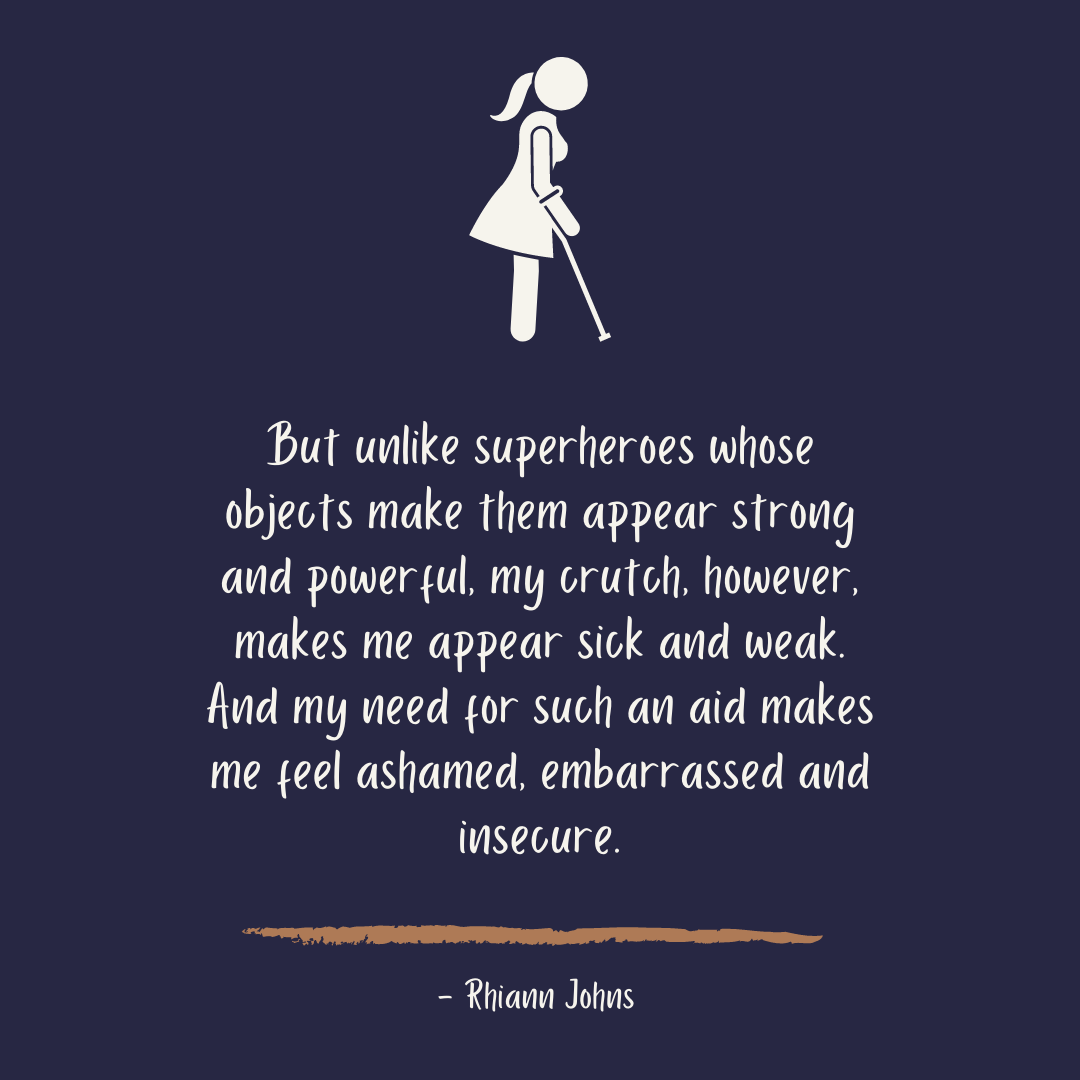
But the truth is that I felt and sometimes still feel embarrassed and insecure about needing and using a crutch. Unlike superheroes whose props make them appear strong and powerful, my prop, however, makes me appear sick and weak. My need for such an aid makes me feel ashamed, embarrassed and insecure. The sight of it made me feel scared about my body and my future. And using it often makes me feel vulnerable.
"But unlike superheroes whose objects make them appear strong and powerful, my crutch, however, makes me appear sick and weak. And my need for such an aid makes me feel ashamed, embarrassed and insecure." Click To TweetUsing it makes me yearn for the years when my illness remained invisible. I miss being able to look in a mirror and forget I was sick, even just for a second. And I especially miss being able to venture out in the world, disguising myself as being like everyone else.
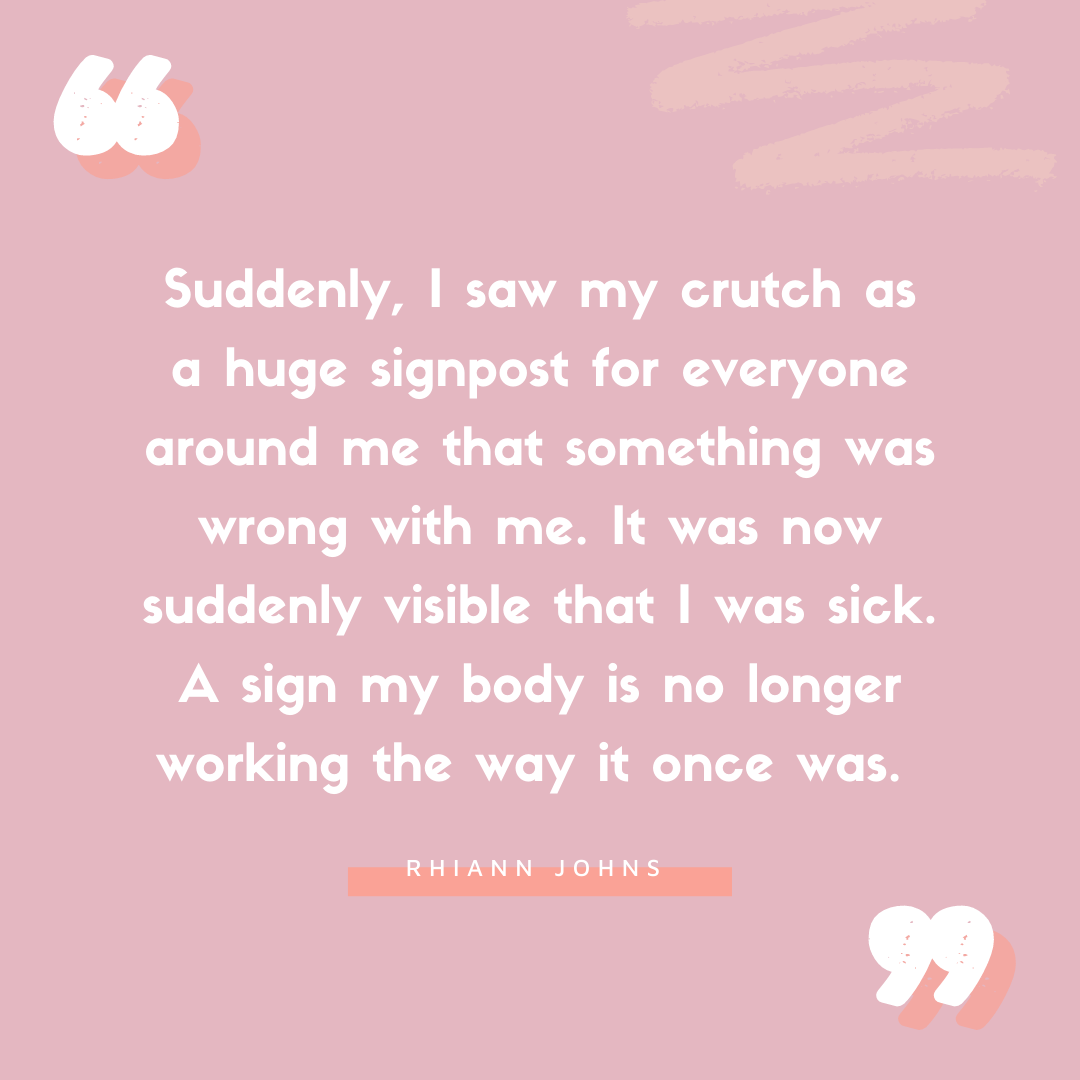
Using the crutch, however, shatters such an illusion. Suddenly, I saw my crutch as a huge signpost for everyone around me that something was wrong with me. It was now suddenly visible that I was sick. A sign my body is no longer working the way it once was. So I consider it a symbol of my impairment: a very visible one. But one which I desperately want to remain hidden.
"Suddenly, I saw my crutch as a huge signpost for everyone around me that something was wrong with me. It was now suddenly visible that I was sick. A sign my body is no longer working the way it once was." Click To TweetUsing A Crutch Made People Notice Me; But Not In A Way I Want To Be Noticed
I was worried that by using it, people would pity me or ask me personal questions. Worried that some people would see the crutch, and only the crutch and not the person behind it.
I was also afraid that a crutch would make me look unfashionable. Accessorising my outfits with jewellery or a scarf, for example, is something I enjoy, but this was one accessory that I didn’t like or want. Instead, I saw it as something that made me stand out, look different from everyone else. Just not how I would like others to notice me.
"Accessorising my outfits is something I enjoy, but this was one accessory that I didn't want. Instead, I saw it as something that made me stand out. Just not how I would like others to notice me." Click To TweetSuddenly the girl staring back at me is no longer recognisable from the one before. No longer is my own body represented in the images shown in glossy magazines, on television or even on film. There are no stylish role models providing examples of how to make a crutch look cool. The lack of representation of mobility aids in the media only adds to my feelings of being different. And also a sense of uncertainty of where and if I belonged.

When we see people using mobility aids in the media, it is usually of older people. However, needing and using one myself often makes me feel old before my time. And I often worry about the judgements of others; people assuming that I’m too young to be needing one, and therefore must be faking. Feeling the constant stares and scrutiny when out only seem to confirm such fears.
Mobility Aid: Disability on Display
I am hyper-aware of the people around me. I can feel people’s gazes on me as they look me up and down as if trying to identify my affliction. Just recently, as I sat waiting for a pedicure at a local salon, I noticed a woman staring at me. It made me feel like I and my disability were on display for everyone to see and scrutinise. Sometimes people even approach me asking, “Oh no, your poor thing, what happened to you?” It’s as if people believe that I am using the crutch due to an injury, expecting a funny anecdote on how it happened. But instead, the need for such an item is because of a long-standing neurological condition and one that requires other mobility aids than just my crutch.
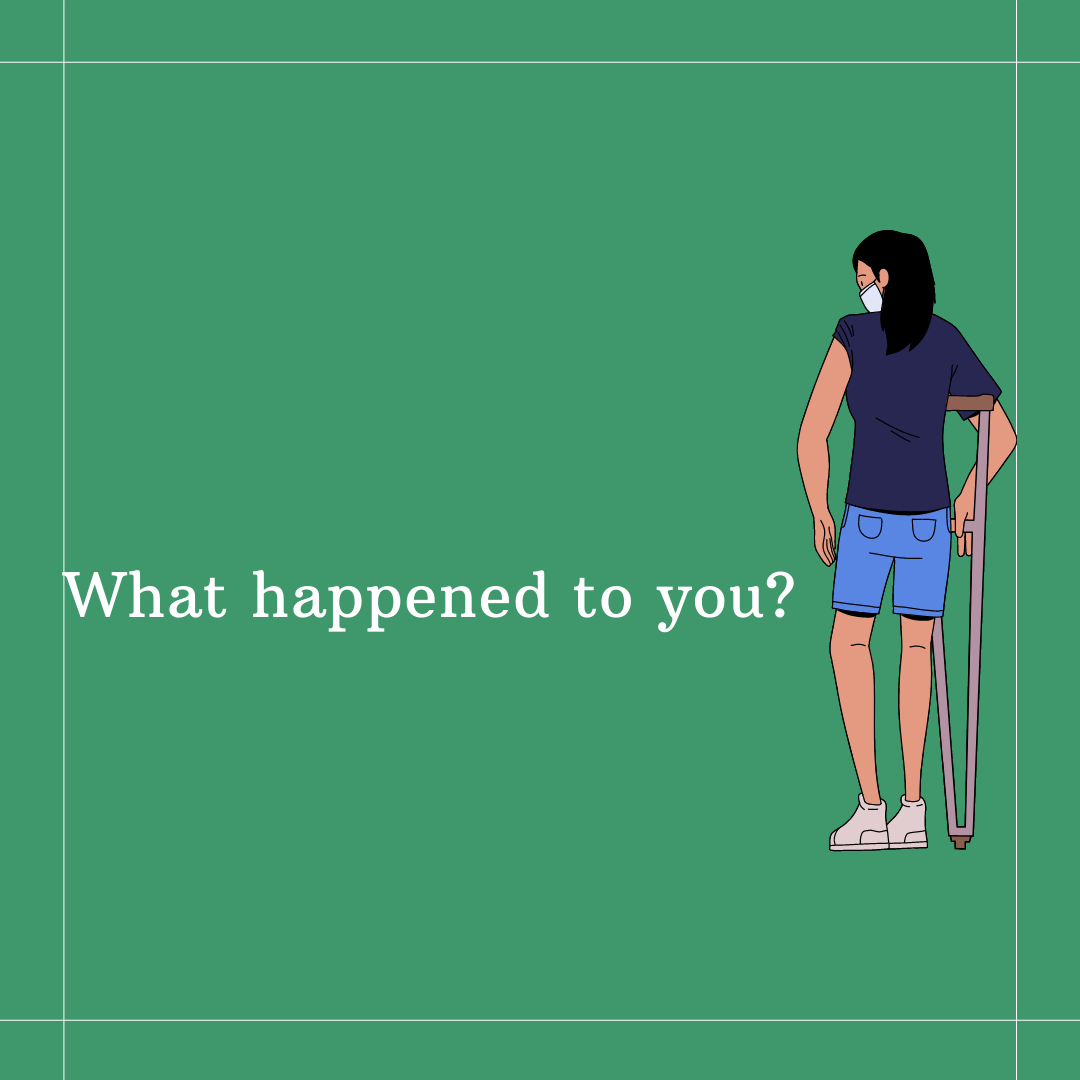
I have not yet found a way to reply to such a question without making others feel awkward. When I reply and tell them the truth regarding my neurological condition, there is a deathly silence, not knowing how to respond. And I feel uncomfortable, as there are times when I don’t want to share details about my disability. Sometimes, I want to forget that it exists, even if my symptoms never let me forget it.
For somebody who was more non-disabled than I am now, introducing a crutch represented losing something that I once took for granted. I had to accept that I could no longer move as freely as I once did. I could no longer rely on my body to keep me safe and free from falls or from the evidence they leave behind. Every new bruise or cut is a stark reminder of the deterioration of both my mobility and balance.
"Introducing a crutch represented losing something that I once took for granted. I had to accept that I could no longer move as freely as I once did. I could no longer rely on my body to keep me safe and free from falls." Click To TweetSuch deteriorations feel like a personal failure like I haven’t tried hard enough to get better. And my newfound dependence on a crutch, so too, felt like a personal failure. I thought that a future of using a mobility aid permanently was giving in to my condition and giving up. It felt that I was saying goodbye to the person I once was and the life I lead and opening the door to something new and unsettling.
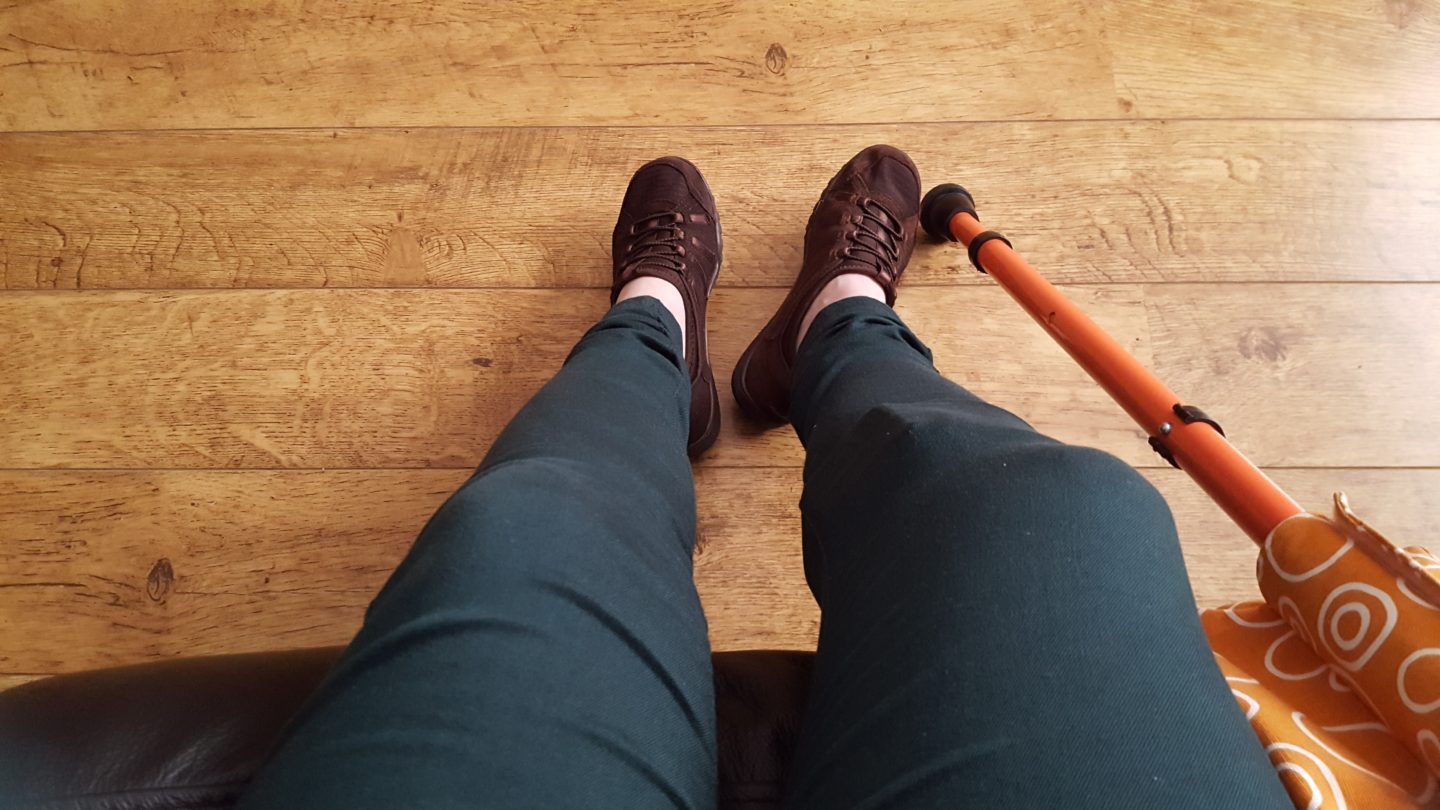
A Newfound Dependence on A Mobility Aid: A Personal Failure?
Society perpetuates the idea that a strong and healthy body is the ideal. And as a result, disability and illness are seen as weakness, as something lesser than. My embarrassment and insecurity of needing and using a mobility aid that identifies me as such is undoubtedly evidence of my internalised ableism. I internalised everything society has taught me and thought that using a crutch and other mobility aids made me weak.
"My embarrassment and insecurity of needing and using a mobility aid that identifies me as such is undoubtedly evidence of my internalised ableism. I thought that using a crutch and other mobility aids made me weak." Click To TweetWhat My Crutch Has Given Me
What I don’t often consider, however, is the positives that using mobility aids have brought into my life. For example, my crutch has meant that I no longer have to rely on the support of another person to help keep my balance. My crutch gives me much more stability, allowing me to help maintain my balance and stopping me from toppling over.
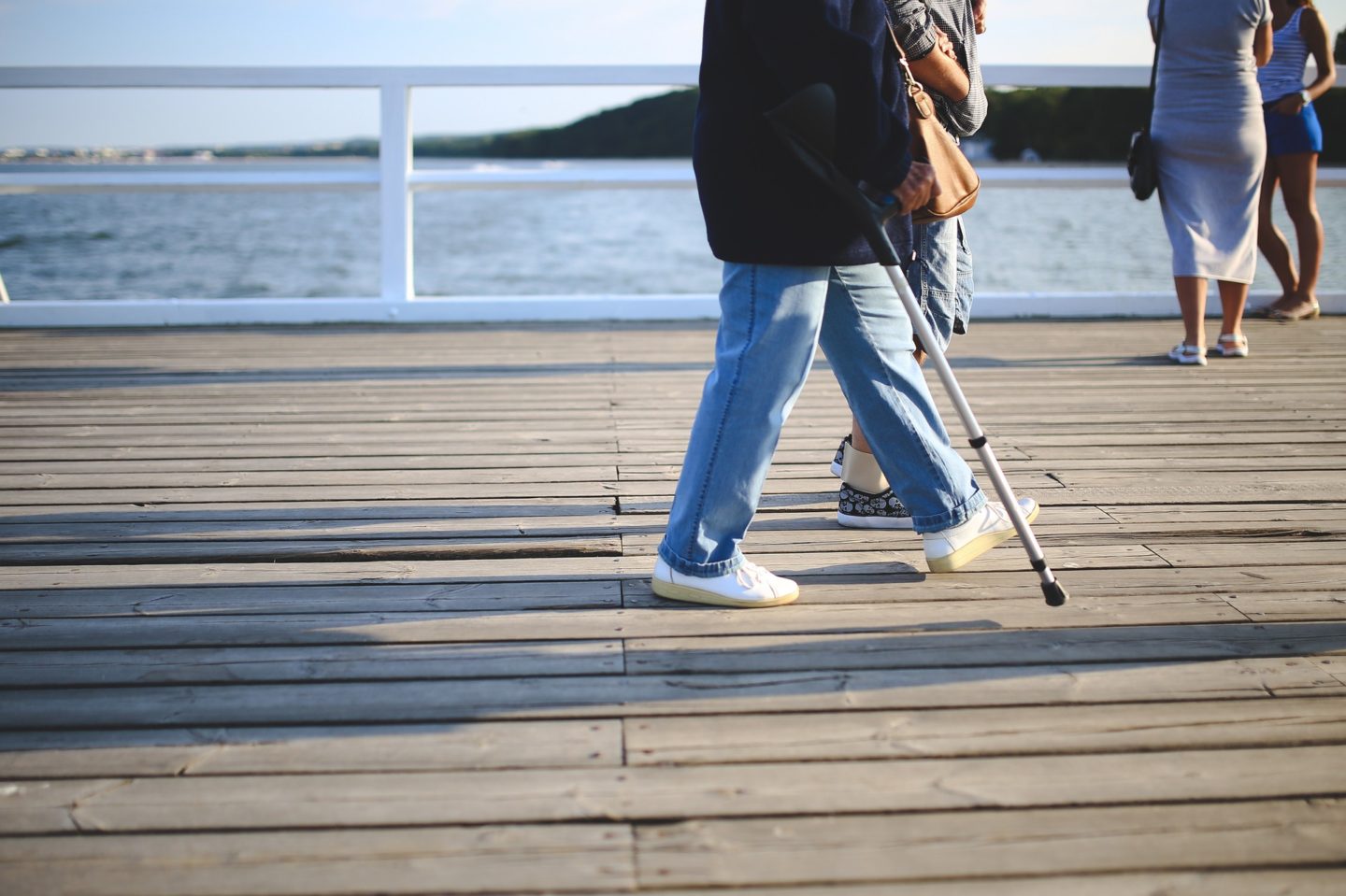
It has saved me the red-faced embarrassment of being left face down on the ground plenty of times by now. When your disability is invisible, people constantly question your need for things such as use for an accessible toilet or a blue badge, for example. Mobility aids, however, often serve as a shorthand for being disabled, and how that there is something wrong and my need for assistance is therefore legitimate. It sometimes feels like a huge weight has lifted when I no longer have to prove my disability and illness.
"Mobility aids, however, often serve as a shorthand for being disabled, and how that there is something wrong and my need for assistance is therefore legitimate. No longer have to prove my disability and illness." Click To TweetOverall, though, my crutch has gone from something that brought me shame and uncertainty to something that has enabled me to live more of a life than I did before. And by accepting and embracing my crutch, I am by extension accepting and embracing myself.
When I go out, the first thing I grab is my bright pink and very cool crutch. No hesitations.
